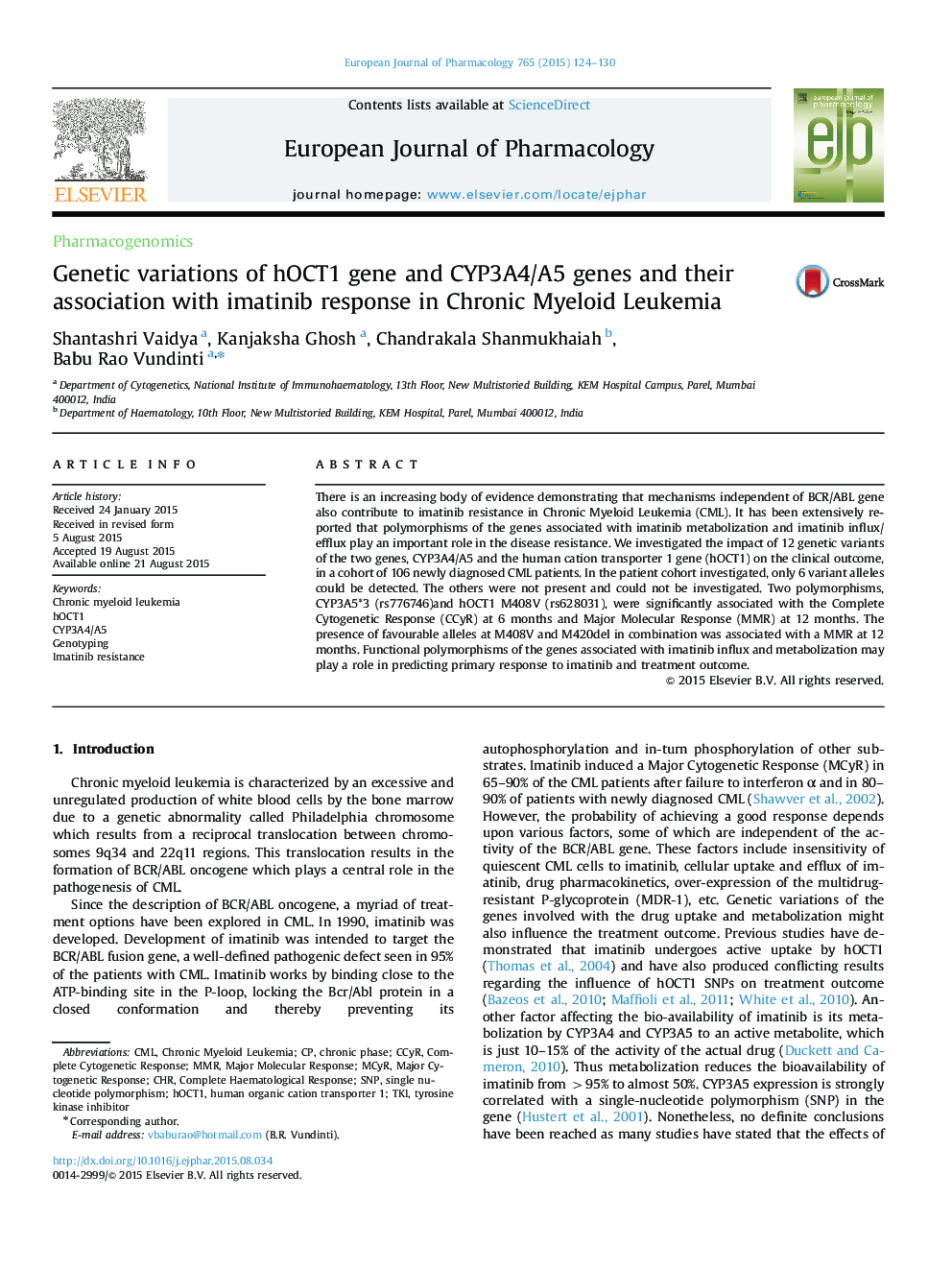| Article ID | Journal | Published Year | Pages | File Type |
|---|---|---|---|---|
| 5826857 | European Journal of Pharmacology | 2015 | 7 Pages |
There is an increasing body of evidence demonstrating that mechanisms independent of BCR/ABL gene also contribute to imatinib resistance in Chronic Myeloid Leukemia (CML). It has been extensively reported that polymorphisms of the genes associated with imatinib metabolization and imatinib influx/efflux play an important role in the disease resistance. We investigated the impact of 12 genetic variants of the two genes, CYP3A4/A5 and the human cation transporter 1 gene (hOCT1) on the clinical outcome, in a cohort of 106 newly diagnosed CML patients. In the patient cohort investigated, only 6 variant alleles could be detected. The others were not present and could not be investigated. Two polymorphisms, CYP3A5*3 (rs776746)and hOCT1 M408V (rs628031), were significantly associated with the Complete Cytogenetic Response (CCyR) at 6 months and Major Molecular Response (MMR) at 12 months. The presence of favourable alleles at M408V and M420del in combination was associated with a MMR at 12 months. Functional polymorphisms of the genes associated with imatinib influx and metabolization may play a role in predicting primary response to imatinib and treatment outcome.
